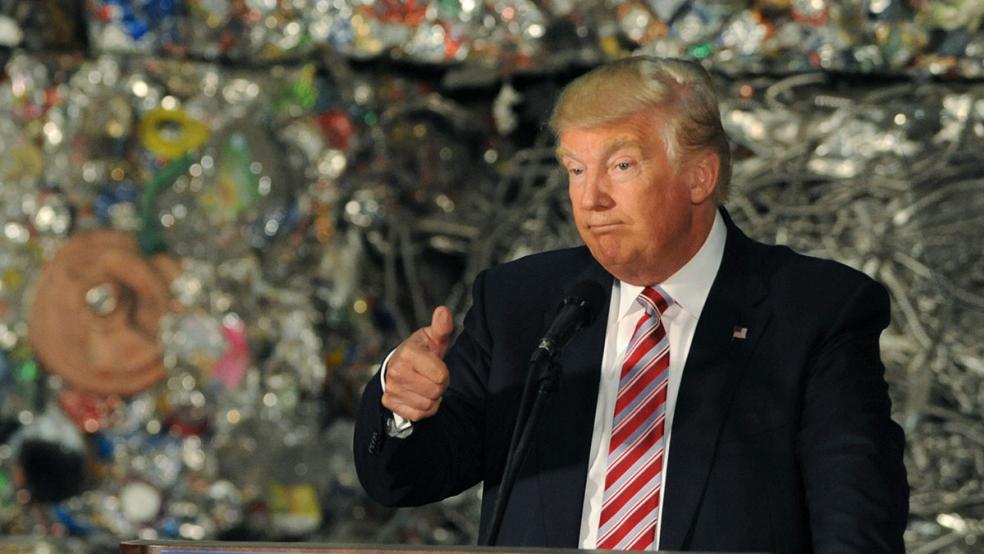Throughout the Republican primary, Donald Trump’s ace in the hole was his obvious willingness to burn the Grand Old Party to the ground on his way out the door if he didn’t receive its presidential nomination.
Every time things started to look bad for the former reality television star, he began suggesting the existence of a vast conspiracy against him that delegitimized the entire primary process.
Related: GOP Convention Made History (and Not in A Good Way)
He repeatedly claimed that the Republican National Committee was working against him, telling his supporters at rally after rally that the primary system was “rigged” and tacitly approving of surrogates who urged massive protests at the RNC convention in Cleveland if Trump didn’t get the nod. He frequently implied that he didn’t consider himself bound by a pledge that he had signed, along with all the other candidates, not to run as a third-party nominee if he did not win the GOP primary.
Trump knew, as did every member of the GOP establishment, that he had the power to cause a massive schism that would effectively end the Republican Party as it currently exists. Trump never had a true majority of the Republican electorate behind him in the primaries, but he owned the loyalty of a major demographic group -- less-educated white men -- that the GOP is dependent on for electoral success.
That group was already angry at the Republican establishment and the threat that Trump might take their votes with him in a third-party run or, at minimum, convince them to stay home in November, was no small thing for the party. It likely had a lot to do with the inability of senior figures in the GOP to bring themselves to denounce him.
Now, it looks as though Trump wants to apply the same strategy to the general election.
Related: Trump Shatters Presidential Norms in Attack on Grieving Parents
As was the case when he accused the GOP of “rigging” the primary, there’s no doubt that things have been going badly for Trump over the past few days.
His decision to attack the parents of a soldier killed in Iraq after they criticized him provoked massive backlash from within and without the GOP.
He embarrassed himself in an interview Sunday morning by appearing completely unfamiliar with the central facts about the ongoing war in Ukraine.
The GOP convention, where he accepted the party’s presidential nomination, turned out to be the first in modern history that hurt, rather than helped, the nominee’s chances for election, according to Gallup.
So, it probably shouldn’t be a surprise that Trump chose Monday to start planting the seed in his supporters’ heads that there might be a massive conspiracy to deprive him of the presidency.
“I’m afraid the election’s going to be rigged, I have to be honest,” he told a crowd in Columbus, Ohio. The effort to rig the GOP primary, he claimed, was only defeated by massive turnout by his supporters. The Democratic primary, he suggested, was clearly biased against Vermont Sen. Bernie Sanders.
Related: Trump Melts Down Spectacularly in ABC Interview
However improbable it is that a major party primary could be fixed in favor of a specific candidate, the idea seems positively sane compared to claim that some cabal could take control of a U.S. presidential election that operates under various rules established by the legislatures of 50 states and multiple territories.
But in the end, logic wouldn’t matter. Trump’s goal wouldn’t be to convince a majority of people that he was right. It would be to convince a loud minority so thoroughly that they would spread, and continue to spread, the idea that the system the U.S. uses to elect its president is itself illegitimate.
That is something that even losers of presidential elections who had legitimate complaints about specific instances of unfair treatment -- think Richard Nixon in 1960 or Al Gore in 2000 -- have declined to do. Both men, who could have made very credible arguments that their opponents’ were not elected legitimately, declined to do so in the interests of the country.
But as Trump has repeatedly shown, the best interests of the country don’t appear to be what is driving his candidacy.





